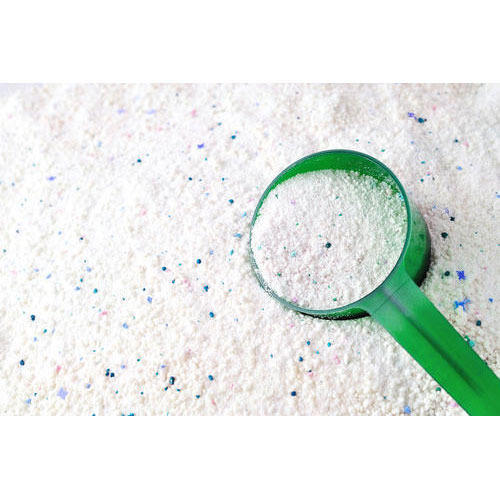
Protease Enzyme Manufacturer
Protease is the enzyme that triggers the proteolysis of proteins into smaller polypeptides or single amino acids. They do this by cutting the peptide bonds within proteins through hydrolysis, a reaction where the water breaks the bonds. Proteases play a part in many biological functions such as digestion of ingested proteins, protein catabolism, and cell signaling. Representing the largest segment of the industrial enzyme market they are also used in detergents, animal feeding, food processing, leather and fabric upgrading, the role of catalysts in organic synthesis, and as therapeutics.
Application Protease Enzyme
| Types of protease Enzyme | Application of Protease Enzyme | Working pH |
| Acid Protease Enzyme | Acid protease enzymes are used in Leather processing, clearing beer and fruit juice, Digestive aids, Malt Industries | 3.0 to 6.0 |
| Alkaline Protease Enzyme | Alkaline protease enzymes are used in Leather processing, Detergent Industries, Textile processing | 7.0 to 11 |
| Neutral Protease Enzyme | Neutral protease enzymes are used in Food industries, brewing industries | 6.5 to 7.5 |
Protease Enzyme in food Industries
Proteases enzyme have been widely used in the baking industry for various purposes like the production of bread, baked foods, crackers and waffles. Protease enzymes provide various benefits such as reducing the mixing time, decrease in dough consistency and uniformity, regulating the gluten strength in bread and improving the texture and flavour. Acid protease enzymes has been successfully used in the improvement of the functional properties of wheat gluten. The addition of this enzyme releases sufficient peptides and amino acids in the wort to get a proper fermentation. Acidic fungal protease enzymes are used in bettering the fermentation of beer as they are efficient even at low pH by balancing the amino acid profile of the beer. Another major application of proteases is in the dairy industry. Naturally occurring proteases contribute significantly to managing the flavour characteristics of cheese. They are used to accelerate the ripening of the cheese, modify the functional properties and reduce the allergenic ones in milk products. In cheese making, proteases are also used to hydrolyze the specific peptide bond to generate paracasein and macro-peptides.


Protease in Laundry Detergent Industries
Proteases are counted among the most widely used enzymes. In laundry detergents, protein stains such as grass, blood, egg, and human sweat are removed using proteolysis. Detergent-compatible proteases with better characteristics are a continuous exercise. The current inclination is towards using detergent-compatible proteases that are stable over a wide temperature range, and elevated pH can be used in detergent formulations. Proteases ensure the removal of proteinaceous food films, which are a particular problem with glassware and cutlery. Serine proteases are the most significant group for detergent applications. Proteases catalyze the hydrolytic breaking of the peptide chain. The most important requirements for the hydrolysis reaction are surface-available substrate S, E/S, pH, reaction time, and temperature. Together with the requirements and properties of the enzyme itself, these parameters are responsible for the course of reaction on a given protein stain.
Protease in animal feed industries
Proteases aid and improve the digestion of proteins and increase amino acid availability, which helps release valuable nutrients. This results in improved animal growth and performance and minimal negative effects of undigested protein in the hindgut. Protease enzymes are the latest in technology on the block, with animal or vegetable protein as their substrate. They crack down on anti-nutritional factors associated with various proteins. Proteases are not bound to diets with alternative ingredients. Animals put on a traditional corn-soybean meal diet cannot utilize 100% of the protein fraction. Therefore, adding a protease enzyme to a corn-soybean meal diet enhances amino acid digestibility and the animal’s performance. Raw ingredients with lower amino acid digestibility respond the greatest to an exogenous protease, which is why its greatest value is when alternative ingredients are used in the diet. Proteases help producers manage the nutritional risks associated with feedstuff quality and allow them to utilize all available feed ingredients in the best way possible.
Protease in brewing industries
Proteases crack down large proteins into smaller ones. This is essential in brewing because brewers rely a lot on the nitrogen content of their beer. Yeasts, which are primarily used for brewing beer, use nitrogen as a nutrient. Nitrogen is found in all proteins, but yeasts prefer freely available nitrogen. Proteases are critical for cutting proteins and providing that nitrogen to the yeast. Using protease allows brewers to control the amount and quality of foam or head in a classic brew. little foam makes the beer seem flat or stale.
Protease also prevents the beer from getting hazy. It can be a sign of too many proteins and polyphenols hanging around in your brew, or it can also be a much more confusing symptom of a bacterial infection. This enzyme can mitigate precipitating proteins and polyphenols by breaking them down and elevating the clarity of the beer.
Protease in Leather Processing
Proteolytic and lipolytic enzymes are widely used in the leather industry. The use of these enzymes is associated with the structure of the animal skin as a raw material. Enzymes are used to remove all the unwanted parts and mirk. This Alkaline protease is added in the soaking phase. This also improves water uptake by the dry skins, removal and degradation of protein, dirt, and fats and finally reduces the processing time. In some cases, pancreatic trypsin is another enzyme is also used in this phase.
Proteases and their use here improve the quality of the leather such as making it look cleaner with a stronger surface.
Protease (Feedozyme-PRO)
Proteases facilitate the breakdown of proteins and enhance the availability of amino acids, which aids in the release of essential nutrients. As a result, animal performance and growth are enhanced, and the adverse effects of undigested protein in the hindgut are significantly reduced. The most recent innovation uses protease enzymes, which use plant or animal protein as their substrate. They dissect the antinutritional properties of different proteins. Proteases are not just found in diets that include different components.
Traditional corn-and-soybean meal diets do not allow animals to utilize 100% of the protein portion. Therefore, incorporating a protease enzyme into a diet rich in corn-soybean meal will improve animal performance and the ability to digest amino acids. Its greatest benefit is when alternative components are utilized in the diet since raw foods with limited amino acid digestibility respond best to an exogenous protease. Proteases enable producers to make the greatest use of all available feed ingredients while assisting them in managing the nutritional hazards related to feed quality.
Are you looking for enzymes?
We're Here to Assist
Frequently Asked Questions(FAQ)
Protease enzymes, also known as proteolytic enzymes or peptidases, are a group of enzymes that break down proteins into smaller peptides or amino acids. They play a crucial role in various biological processes, including digestion, protein turnover, and cell signaling.
When using protease enzymes, it is important to consider:
- Enzyme activity: Choose the appropriate protease with the desired activity level for the specific application.
- pH and temperature: Protease enzymes have optimal pH and temperature ranges for optimal activity.
- Inhibitors and stability: Be aware of potential inhibitors that can affect protease activity and ensure proper storage conditions to maintain enzyme stability.
Protease enzymes are instrumental in the food industry for tasks such as meat tenderization, dairy processing, and flavor enhancement. Our protease enzyme solutions are crafted to meet the high standards of the food processing sector, ensuring optimal results.
Yes, our Protease Enzymes are versatile and compatible with a range of industrial processes, including pharmaceuticals, textiles, and biofuel production. We provide solutions that seamlessly integrate into diverse applications, ensuring flexibility and efficacy.
